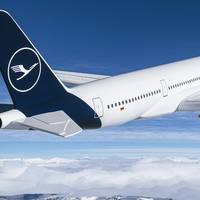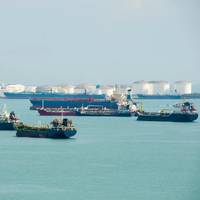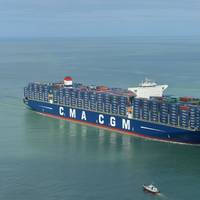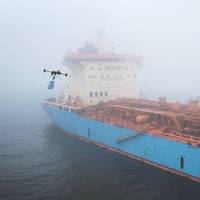Product Tankers Poised to Profit from Jet Fuel Rebound

The airline industry has been hit hard during the COVID-19 pandemic and seaborne jet fuel cargo volumes suffered along with it. In comparison to pre-pandemic levels, available seat kilometers dropped nearly 90% in early 2020. Initially, air cargo volumes fell as well but saw volumes climb 5-10% above pre-pandemic levels in 2021. During 2022, the surge in cargo volumes slowed along with global economic growth prospects whereas passenger traffic continued to recover. Now, the relaxation…
UN Urges Prioritization of Seafarer Vaccinations
Unite Nations organizations this week issued a joint call for the world's seafarers to be prioritized for COVID-19 vaccination, stressing their key role in supporting global trade.The heads of five UN organizations have called for maritime and air transport workers to be prioritized for COVID-19 vaccination.Seafarers and aircrew are key workers, required to travel across borders, which may—though contrary to WHO recommendations—result in the need for them to present proof of a COVID-19 vaccination as a condition for entry in some countries.
Minerva Bunkering Announces Carbon Offsets Offering

Minerva Bunkering said it launched a new offering enabling customers to mitigate carbon emissions associated with the bunker fuel they consume. With each transaction, Minerva retires verified carbon offset certificates in an equal and offsetting amount to the emissions value of the bunker fuel as calculated per the International Maritime Organization’s (IMO) published emissions factors.“Our global client base of ship owners and operators is increasingly seeking to reduce the emissions intensity of their operations as well as provide carbon-neutral freight services to their own customers.
UK Gov't Urged to Exempt All Offshore Workers from Quarantine Restrictions

A group comprising five offshore energy industry associations has called for the UK Government to exempt all offshore energy sector workers from the 14-day quarantine restrictions introduced on June 8.The group that calls itself the global Offshore Industry Group, comprises International Association of Drilling Contractors (IADC), International Association of Geophysical Contractors (IAGC), International Marine Contractors Association (IMCA), International Association of Oil…
Polar Radio Communication, Navigation Norms Getting Ready
International Maritime Organization (IMO)’s Polar Code helps ensure that ships operating in the harsh Arctic and Antarctic areas take into account extremes of temperature and make sure critical equipment remains operational.Draft guidance for navigation and communication equipment intended for use on ships operating in polar waters is expected to be finalized by the current session of the Sub-Committee on Navigation, Communications and Search and Rescue (NCSR 6, 16-25 January).The guidance will include recommendations on temperature and mechanical shock testing, and on how to address ice accretion and battery performance in cold temperatures.The Sub-Committee will also consider the report of the 14th meeting of the Joint IMO/ITU Experts Group on maritime radiocommunication matters.
Fast, Quick Action Needed to Meet Paris Climate Goals: CAN
The International Maritime Organisation (IMO) has agreed on an initial strategy to decarbonise international shipping and reduce emissions from ships by at least 50% by 2050. While this agreement falls short of the 70 to 100% reductions by 2050 that the Pacific Islands, the EU and others were calling for ahead of the meeting, it keeps a window open to meet the Paris climate goals and is undeniably a game changer for the shipping sector. This plan serves as a welcome first step to phase out emissions from the sector, but the IMO must now build on the agreed minimum target of 50% reductions in subsequent reviews of the strategy to comply with its fair share of emissions under the Paris Agreement.
IMO on Distress and Safety at Sea
Seafarers depend on a robust distress and safety system when life is in danger at sea. This week’s meeting of the Sub-Committee on Navigation, Communications and Search and Rescue (19-23 February) will be focusing on core areas of International Maritime Organization (IMO)’s work relating to safety at sea. The meeting will review progress in its ongoing work to modernize the Global Maritime Distress and Safety system (GMDSS). The GMDSS was adopted in 1988 to ensure full integration of maritime radio and satellite communications so that distress alerts can be generated from anywhere on the world’s oceans. The modernization plan aims to update the provisions, including allowing for the incorporation of new satellite communication services.
Technology Cooperation for Low-Carbon Shipping
The Global MTTC Network (GMN) maritime technology project, run by International Maritime Organization (IMO) and funded by the European Union, was presented during a side-event (10 November) at the UN climate change conference in Bonn, Germany (COP 23). The project established a network of five regional Maritime Technology Cooperation Centres (MTCCs). Representatives of the European Union, IMO, MTCC-Caribbean and MTCC-Pacific participated at the event. MTCCs updated the audience on their pilot projects, including data collection on fuel oil consumption on ships. From 2019, ships over 5,000 gross tonnage worldwide – which account for 85% of CO2 emissions from international shipping - will be required to collect consumption data for each type of fuel oil they use…
UN to Support Senegal’s Maritime Security
International Maritime Organization (IMO) joined other United Nations agencies supporting Senegal’s maritime and port security, in an assessment visit to Dakar (27-29 March). IMO acted as the lead agency for maritime security provisions during the assessment of Senegal’s implementation of important Security Council resolutions addressing counter-terrorism. Border management was a main focus of the mission, which included meetings with maritime authorities and border management agencies. The visit, led by the United Nations Counter-Terrorism Committee Executive Directorate (UNCTED), was a follow-up to a similar mission in 2009, which focused on border control and police cooperation. UNCTED counter-terrorism missions of this kind embrace security in all its forms.
Shippers Want Timeline for Emissions Reduction

About 90 percent of global trade is moved by cargo ships which are collectively responsible for about 2.2 percent of the world's total Green House Gas (GHG) emissions (similar to that emitted by international aviation). As a considered response to the Paris Agreement on climate change, the world's national shipowner associations – represented by their global trade association, the International Chamber of Shipping (ICS) – have pledged their support for the development of a timeline for the further reduction of the shipping sector's GHG emissions.
Drones: Is the Maritime Industry Ready?

Unmanned aerial systems (UAS), or “drones” in common parlance, are not a part of the historical maritime vocabulary. At least not yet. While the term “drones” may conjure images from science fiction, the reality is that companies are designing commercial UAS for the private sector, and they are gradually permeating our daily life. Henry Ford is rumored to have opined on his invention of the automobile that if he had asked people what they wanted, they would have said “faster horses.” In the case of UAS…
Experts Say Shipping Emissions Must Peak Soon to Achieve Paris Goals
International shipping and aviation will have to cap their greenhouse gas emissions (GHG) soon for the world to meet the ambitious goals laid down in the Paris Climate Change Agreement, participants at a side event at the Bonn climate change conference heard today. Emissions of carbon dioxide from aviation and shipping are growing at a combined rate of 3-5 percent annually. Efforts by the United Nations bodies overseeing these sectors to agree and adopt strategies to address climate change have moved forward but critical action areas remain to be fully addressed, panelists in the session said. There is “recognition that all countries need to tackle emissions from international transport,” said Martin Cames, Head of Energy and Climate at Öko-Institut. “Setting a target is key . . .
Development on BWM highlights - IMO's R&D Forum
Ballast water management experts, meeting at the recent IMO-GloBallast R&D Forum in Canada, have showcased the latest developments in ballast water management and highlighted the areas where further research is needed, in order to prevent the spread of potentially harmful species in ballast water. Some 140 participants from IMO Member States, academia, private sector, testing facilities and the maritime technology industry were meeting at the International Civil Aviation Organization (ICAO) in Montreal, Canada, for the 6th Global Environment Facility (GEF)-United Nations Development Program (UNDP)-IMO GloBallast R&D Forum and Exhibition on Ballast Water Management (16-18 March 2016), under the banner “Ballast Water Management Convention – moving towards implementation”.
Excluding Shipping Emissions from COP Deal Makes 2°C Limit Close to Impossible
The dropping of international aviation and shipping emissions from the draft Paris climate agreement published this afternoon has fatally undermined the prospects of keeping global warming below 2°C, green NGOs Seas At Risk and Transport & Environment (T&E) have said. As their emissions uniquely fall outside national reduction targets, they require an explicit reference in the agreement. If treated as countries, global aviation and shipping would both make the list of top 10 emitters. In recent years their emissions have grown twice as fast as the those of the global economy – an 80% rise in CO2 output from aviation and shipping between 1990 and 2010, versus 40% growth in CO2 emissions from global economic activity – and they are projected to grow by up to 270% in 2050.
Loss of MH370: Inmarsat Offer Free Global Tracking
In advance of the conference on aircraft tracking currently being hosted by the International Civil Aviation Organization (ICAO) in Montreal, Inmarsat has confirmed that it has proposed to ICAO a free global airline tracking service over the Inmarsat network, as part of the anticipated adoption of further aviation safety service measures by the world’s airlines following the loss of flight MH370. This service is being offered to all 11,000 commercial passenger aircraft, which are already equipped with an Inmarsat satellite connection, virtually 100 per cent of the world’s long haul commercial fleet. In addition to this free global airline tracking service…
Electronic Cartography Market worth $20 Billion by 2020
According to the report "Electronic Cartography Market by Application (Marine - Commercial and Defense, Aviation - Marine - Commercial and Defense), Components (Systems, Charts), Marine Electronic Navigation Systems (ECDIS, ECS), Aviation Electronic Navigation Systems (Very Large Aircrafts, Wide Body Aircrafts, Narrow Body Aircrafts), Marine Electronic Charts Licensing Mode (PAYS, Direct), Geography (APAC, Europe, North America, South America, Middle East and Africa) Forecast and Analysis, 2014-2020", published by MarketsandMarkets, the electronic cartography market is expected to reach $20.3 billion, growing with a CAGR of 1.46% from 2014 to 2020. The last few years have witnessed a well paced revolution in the electronic cartographic market.
Maritime & Aviation Emissions Research: Impact on Developing Countries
New research published by a consortium of Climate Strategies, University of Cambridge, Cambridge Econometrics, CE Delft and Transport Analysis and Knowledge Systems (TAKS) assesses the impacts on developing countries of measures to address emissions in the international aviation and shipping sectors. Greenhouse gas emissions of international aviation and maritime transport are projected to increase rapidly over the coming decades, despite significant improvements in fuel-efficiency of aircraft and ships. In order to address their growth, Market Based Measures (MBMs) have been proposed to complement technical and operational measures. These measures are being discussed in ICAO (the UN organization for civil aviation) and IMO (the UN organization for maritime transport).
IMO Joins International Ebola Task Force
The International Maritime Organization (IMO) has joined the international ad hoc Ebola Travel and Transport Task Force and is working with other United Nations agencies and nongovernmental organizations to monitor the situation and provide timely information in response to the outbreak of the disease. IMO, the International Chamber of Shipping (ICS) and the Cruise Lines International Association (CLIA) have joined forces with the World Health Organization (WHO), the International Civil Aviation Organization (ICAO), the World Tourism Organization (UNWTO), Airports Council International (ACI), International Air Transport Association (IATA) and the World Travel and Tourism Council (WTTC) in the Travel and Transport Task Force. IMO has issued a circular letter (No.
IMO Joins International Ebola Task Force
The International Maritime Organization (IMO) informs it has joined the international ad hoc Ebola Travel and Transport Task Force and is working with other United Nations agencies and non-governmental organizations to monitor the situation and provide timely information in response to the outbreak of the disease. IMO, the International Chamber of Shipping (ICS) and the Cruise Lines International Association (CLIA) have joined forces with the World Health Organization (WHO), the International Civil Aviation Organization (ICAO), the World Tourism Organization (UNWTO), Airports Council International (ACI), International Air Transport Association (IATA) and the World Travel and Tourism Council (WTTC) in the Travel and Transport Task Force. IMO has issued a circular letter (No.
EU Climate Deal Must Address Shipping, Says Greens
The groups representing European Parliament's (EP) environment committee are urging European leaders to include international shipping in the global climate deal scheduled to be signed in Paris in December. The 28 EU member states meet on 18 September to finalise their position for The UN Framework Convention on Climate Change conference (COP 21) to be held in Paris in December. The heads of 7 of the 8 political groups of the EP's committee has written to the Environment Ministers of the 28 EU countries urging them to include shipping. In the letter they noted that international shipping and aviation already accounted for 8% of global greenhouse gas and emissions from shipping were expected to grow by 50 – 250% by 2050.
Shipping Emissions Back in COP21 Agenda
The shipping industry emissions is back in the draft Paris COP 21 agreement following a meeting of negotiators in Bonn last week. Shipping was dropped earlier in October. However, on October 14, E.U. parliamentarians called for emissions reduction targets for both sectors to be set before the end of 2016 by the corresponding UN agencies, the IMO and the International Civil Aviation Organisation (ICAO). Transport & Environment (T&E) has welcomed the reinsertion of international shipping and aviation CO2 emissions into the draft Paris agreement. Praising the decision to re-include the industry along with aviation EU sustainability lobby group T&E has called for a “clear signal” to these sectors.
Shipping, Aviation Dropped from Paris Climate Text
The global airline and shipping industries appeared to win a symbolic reprieve from the growing global drive to reduce carbon emissions on Wednesday, cut from a new draft climate change pact being negotiated in Paris. As nearly 200 nations attempt to craft a breakthrough global deal to slow the rise in world temperatures, the reference to two of the world's fastest-growing emitters appeared to be one of the first significant changes in an agreement still riddled with much bigger, more contentious issues. A previous draft from Dec. 5 had included an optional paragraph that would have singled out the two sectors and encouraged nations to curb their carbon output "with a view to agreeing concrete measures addressing these emissions".
Ambitious Countries Must Push for Shipping in Climate Deal
Countries calling for an ambitious agreement at the Paris climate summit must insist that language on aviation and shipping emissions be reinserted or the prospects of keeping global warming below 2°C, let alone 1.5°C, will be fatally undermined, green groups have warned. The latest draft deal, issued days before talks are due to end, dropped any mention of the two international transport sectors, which fall outside national reduction targets and therefore require an explicit reference in the agreement. Earlier drafts of the deal at the COP21 summit this week had called for the ‘reduction of greenhouse gas emissions from international aviation and marine bunker fuels’ by working through the UN agencies that regulate aviation and shipping sectors.





